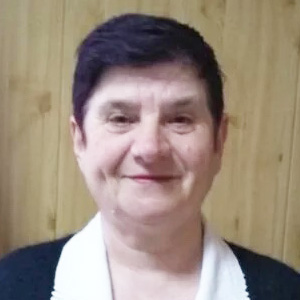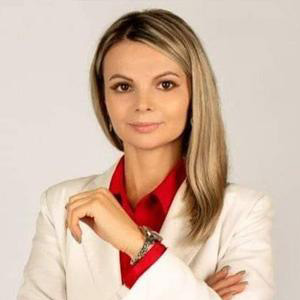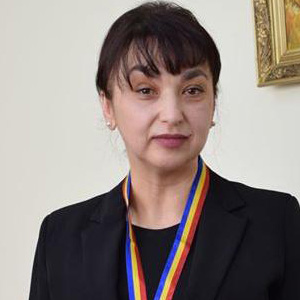Women Mayors in Moldova
A record number of women are elected mayors and councillors but progress is still slow and gender-based abuse persists
Women Mayors in Moldova (from left to right): Zinaida Mocanu (Obreja Veche); Tatiana Coclu (Orhai); Lilia Pilipetchi (Soroca)
April 2024: In Moldova, a country of 2.5 million people, bordered by Ukraine to the north and Romania to the south, a larger percentage of women are elected to local government offices than in many much larger European countries such as Britain, Germany and Italy. In last year’s country-wide local elections, some 23,700 women became candidates for mayor and level I and II local councillors. At the election, held on 5 November 2023, 215 women mayors were elected across the country, while the number of female councillors totalled 4,492. However, analyses distributed by the UD Development Agency UNDP bemoan the slow progress made in electing more women to local government. Women running for elected office are also often confronted with abuse in the media and online.
According to Moldova’s Central Electoral Commission (CEC), which published the statistics this month (April 2024), the number of women mayors increased by 19 since the previous local elections in 2019, while there are now 369 more female councillors at levels I and II of local government. (Level I consist of 32 districts, the three municipalities of Chișinău, Bălți, and Tighina as well the two autonomous territories of Gagauzi and the left bank of the Dniesta. Level II is made up of villages and ten smaller municipalities.)
A spokesperson for the CEC said the new Electoral Code, introduced on 1 January 2023, boosted women’s participation and success in local elections. "Comparing the most recent results with those from previous national local elections, some 2.2 per cent more women were elected as mayors in the 2023 elections than in 2019, and 3.4 per cent more than in 2015. The data also shows that in 2023, the number of women in city and village councillors increased by five per cent compared to 2019, while 11.5 per cent fewer women were elected in 2015. In 2023, 6.6 per cent more women were elected as district/municipal councillors, while in 2015, 15.2 per cent fewer women were elected to this position."
Despite the progress made by women in Moldavian in public life and politics, they still face gendered abuse and disinformation online and in the media.
"During election campaigns, women candidates are subjected to slander, hatred, sexist speech, gender discrimination and violence,” noted a report from UN Women in Moldova, an agency promoting gender equality and empowerment."
“Women remain underrepresented in the labour market due to the persistence of patriarchal attitudes and deep-rooted stereotypes. Women from underrepresented groups (Roma women, women with disabilities, rural women) have even lower employment rates due to multiple forms of discrimination.”
A separate analysis distributed by the UN Development Agency UNDP predicted that by 2035 the share of women mayors in Moldova will reach 30 per cent. However, the authors of the research criticise the slow progress made in electing more women to local government.
“By 2035 in the Republic of Moldova, the share of women mayors will reach 30 per cent - that’s one of the key findings of a gender monitoring report on local general elections conducted by the Partnership for Development Centre (CPD). The analysis, entitled "Women mayors in the shadow - A study on the representation of women and men in elected offices at the mayoralty level" was developed in partnership with the Civic Coalition for Free and Fair Elections, with support from the Swiss Agency for Development and Cooperation (SDC), IM Swedish Development Partner Lund Moldova, UN Women and UNDP Moldova.
The monitoring revealed barriers to women's participation in elective office that will require reflection and a joint effort to overcome. The experts' findings highlight that there are social and cultural factors that influence women's propensity to enter politics. Caring responsibilities, the lack of family support and a lack of confidence in their strengths and capabilities are the main barriers identified.
Another important issue revealed by the monitoring is the stereotypical representation associated with the position of mayor. About 50 per cent of respondents associate this function with qualities related to marital status, the presence of children and religiosity. Also, only 8 per cent believe that a mayor should be a woman, while 36 per cent believe it should be a man. These opinions reflect the need for a change in society's mentality and perceptions of the role and capabilities of women in politics.
Concerning women's participation in elections, there has been a slow increase in the number of women running for mayor. Compared to the 2011 elections, the share of women candidates increased by only seven per cent. In the 2023 local elections, the share of women candidates was 30.4 per cent of all candidates, an increase of only three per cent compared to the 2019 elections and seven per cent compared to the 2011 local elections. This highlights the need for further efforts to increase women's participation in politics.
For independent candidates, there has been an increase of six per cent compared to the 2019 election. However, the share of women running as independent candidates remains lower than that of women nominated by political parties.
About women elected as mayors, the progress made is insignificant. In this election, 215 women mayors were elected, representing 24 per cent of the total number of candidates. Compared to previous elections, the number of women candidates increased by only two per cent. This trend has remained unchanged over the last four elections. Taking into account the evolution of recent years, it is estimated that the share of women mayors will reach 30 per cent in 2035.
ON OTHER PAGES: | Women mayors in European capital cities | American Women Mayors | Canadian Women Mayors | Mexican Women Mayors | French Women Mayors | British Women Mayors | New Italian women mayors | Polish Women Mayors | Dutch Women Mayors | Spanish Women Mayors | Turkish Women Mayors | Moldova Women Mayors | German women mayors |






